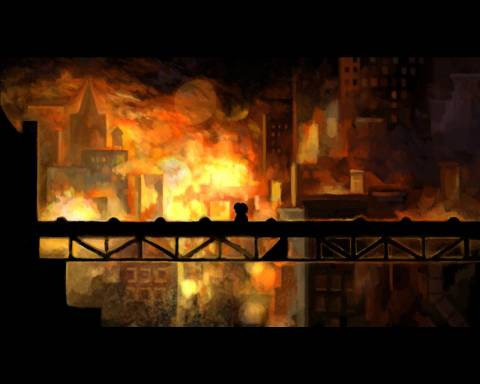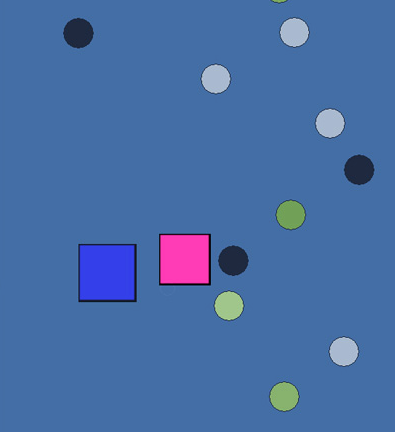Overview
The man behind the critically acclaimed Braid, released in 2008, and forthcoming The Witness, Jonathan Blow started his game development career as a programmer but has since become a vocal advocate of the advancement of good, ethical game design and is a well-respected figure within the independent games scene.
Starting Out
Jonathan Blow studied computer science at the University of California, Berkeley and his first job was in porting copies of Doom and Doom 2 onto a set-top box. He then teamed up with a friend from college, Bernt Habermeier, and together founded a company called Bolt-Action Software which went on to make an online team-based strategy game called Wulfram. With hindsight, Blow has said that Bolt-Action started at one of the hardest times for a games company to have begun, given the concurrent industry transition to 3D graphics and the economics of a smaller game studio becoming less feasible at that point. He worked there for 4 years and at that stage of his career was most interested in the really hard programming challenges that his technical role afforded, rather than primarily being concerned with creating playable and finished games.
Blow went on to become a consultant on a number of games and wrote a column in Game Developer Magazine on coding called the Inner Product. He also started running the Experimental Gameplay Workshops at GDC.
The Road to Braid and Independent Development
 Braid's success enabled Blow to stay independent
Braid's success enabled Blow to stay independentDespite frequently creating small game prototypes and starting on many independent game projects, these did not get finished. Jonathan Blow reached a point of deciding to get serious and committing to finishing at least one really good game, whether or not it was financially successful. This game idea turned out to be Braid which had been inspired by a mailing list discussion Blow was a part of about the concept of time-rewinding in games and how it could be done more effectively than in games of that period that used that mechanic. The project eventually reached the stage where Blow felt it was necessary, but also worthwhile, to take the risk of remortgaging his house in order to make Braid as good as it could be, leading him to even have to sleep at the house of his good friend, and fellow game developer, Chris Hecker for some of this time. During development, Braid was entered into the 2006 Independent Games Festival and picked up the Design Innovation award.
Success and the Indie Fund
Blow acknowledges that 2008 was a good time for Braid to be released as a number of visible platforms for selling independent games were starting to gain traction such as Xbox Live with whom he signed a deal to launch Braid on. After launch the game was critically very well-received and was also a hit in terms of sales, enough so that Jonathan Blow felt confident that he could continue as an independent developer for the foreseeable future and so has not had to sign with a publisher for his next game The Witness.
The financial success of Braid made him one of a handful of other indies (such as from 2D Boy and Flashbang Studios) who decided to club together to create the Indie Fund that could help other indies who needed money to get there games made and stay financially independent, without having to rely on publishers who would offer less favourable terms. They thereby are aiming to enable the next generation of game developers to make it.
Philosophy of Game Design
Even before Braid came out, Jonathan Blow started to become known for his forthright views on game design and in particular a talk he gave at the Montreal Games Summit 2007 gained a lot of exposure in which he attacked Blizzard's World of Warcraft among others for using exploitative mechanics that kept players hooked via rewards and acted almost as a drug rather than providing satisfying and meaningful content to its players. He has continued to frequently give talks at large events and there are a number of themes that reoccur in these that give a sense of some of his philosophy of game design:
- Games are a hugely influential form of media in society and should therefore be designed to have a positive long-term effect on people.
- Game players should not be exploited but have their time respected by games being filled with worthwhile and 'generous' design.
- Designed game systems can reveal something about the nature of the universe/truth.
- When designing around a core mechanic, give ideas enough time to gestate and 'listen' to how the game is naturally evolving to produce the best work that thoroughly explores this mechanic.
- Wants to use games to explore important ideas and themes to shed light on things that can't easily be understood.
- Games with a story should have mechanics that are consistent with their message in order to be most effective.
- Advocates beginning a game's design with a message you want to get over, rather than a setting or characters, with thematic content coming from the game rules.
- Game designers should rapidly prototype game ideas so bad ideas can be more quickly diagnosed as such and be discarded.
- Being able to program is highly beneficial to being a game designer.
Another stand-out feature of Blow's recent game design past, that he has not devoted a lot of time to focussing on in his talks, is how both Braid's and The Witness' core game content were in place years before the games came out, such that it was possible to play through the entire game at a very early stage in development. In both cases puzzles have still been added, tweaked and cut from the games right up to release but it has allowed Blow to spend years of development time just on the finer honing and polishing of the games rather than mainly focussing on the creation of content in the first place and having a shorter beta phase, which is what many game development teams are more used to.
Influence on other Indies
 The Marriage is just one game Blow has had a hand in influencing
The Marriage is just one game Blow has had a hand in influencingA large part of the visible independent gaming scene is a well connected community and sends builds of their games throughout development to each other for peer review and advice. Jonathan Blow is a key part of this scene and has been frequently cited by other independent developers as being a helpful contributor to the development of their games. For example, at the 2012 IGF awards the developers behind winners 'Storyteller' and 'Spelunky' specifically mentioned him, with Derek Yu who created Spelunky specifically thanking Blow in his acceptance speech for his "generosity and caring about the original version of the game".
In making the oft-cited metaphorical game The Marriage, Rod Humble said that he took inspiration from Jonathon Blow's "Raspberry" prototype "which seemed to me to start to push towards expression through gameplay".
 Daniel Benmergui, Marc ten Bosch, Chris Hecker and Jonathan Blow at the first Depth Jam
Daniel Benmergui, Marc ten Bosch, Chris Hecker and Jonathan Blow at the first Depth JamIn 2010, Blow started arranging a series of monthly developer meet-ups in the San Fransisco Bay Area with a view to creating an environment for a high level of discussion that would benefit those invited in a greater way than conferences, casual meet-ups or game jams often manages to create. Out of this same desire to find better formats within which game developers can solve design problems in their games, or generally grow their ability as game designers, the first Depth Jam was organised in May 2012. This was a retreat featuring Jonathan Blow and 3 other game developers, who over a number of days tried to solve specific questions that they chose, concerning their in-development games.
Personal Interests
In addition to his views on game design he has said that he has always cared about deep questions such as the meaning of life since a young age and has said he is not a very materialistic person.
Shortly after its release he became an avid player of Counterstrike to a high level under the name 'naysayer' and was in one of the top-ranked clans on the (American) West Coast.
He is interested in martial arts and somatics.
Notable Prototypes and Talks by Blow
Playable game prototypes: http://number-none.com/blow/prototypes/index.html
Talks:
Trivia
- Owns an electric-powered Tesla Roadster.
- Tries to go on a silent retreat at least once a year.
- Has a sword hung above his fireplace.
Log in to comment